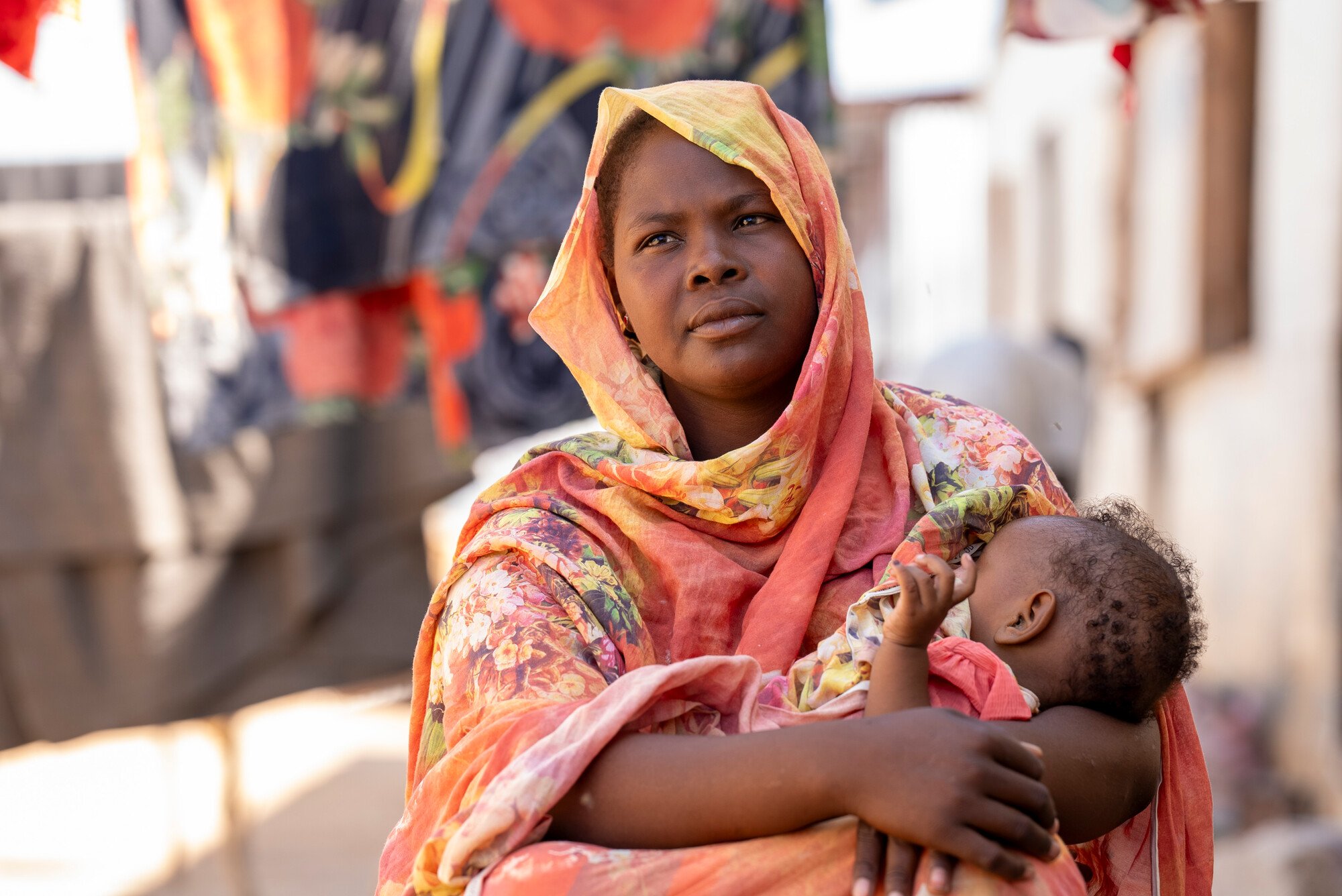Oxfam is calling for humanitarian access for Palestinians in Gaza, who are suffering from massive displacement and shortages of fuel, electricity, and food.
The ongoing conflict between Hamas and Israel is creating a humanitarian catastrophe affecting thousands of civilians across the densely populated Gaza Strip. Most Oxfam staff are reporting widespread displacement as either their homes have been destroyed or they are fleeing to the south given the Israeli government’s evacuation order.
“We have no water, no food, no Internet,” says Wassem Mushtaha, Oxfam’s manager in Gaza, who fled with his family and traveled for three days to a relative’s house in Khan Younis. They are now living in two apartments housing 120 people, where they have had no water for two days. He says his son told him, “My dream is to have a shower.”

Also, among the people displaced by the fighting in Gaza is Khloud Jwefil, a program officer for Oxfam, whose house was destroyed.
“The only thing I really remember is the moment we left the house, running in the streets, knowing nothing, having nothing with us,” she said. “The only thing I can do is to try and keep my son calm and try to convince him there is nothing risky around us.”
She hopes the fighting will stop as soon as possible. “What I really wish is for this to come to an end. It is really too much.”
On October 8, the government of Israel cut off all food, water, and fuel going into the Gaza Strip.
The lack of electricity across Gaza is endangering millions, as hospitals run out of fuel to operate generators, and damage from airstrikes have disrupted services to already scarce water and sanitation facilities. The wastewater treatment plant in northern Gaza has stopped operating, leading to the discharge of raw sewage into the sea.
Advocating for peace
Oxfam and our partners in the Occupied Palestinian Territory have for decades advocated for a sustainable peace and an end to the 16-year blockade of Gaza.
Oxfam continues to call for Palestinian groups to immediately release civilian hostages, whose ongoing detention is a grave violation of international law. While the Israeli government has the right and obligation to protect its citizens, cutting off food and water to civilians trapped in Gaza, who are unable to seek safety, is potentially a serious violation of international humanitarian law. Even the pre-existing blockade has been declared illegal by both the International Committee of the Red Cross and the United Nations, as it amounts to “collective punishment.”
Following Israel’s order for people to evacuate the northern half of Gaza, Oxfam publicly called for the US government to urge the Israeli government to rescind the order.
Oxfam is also urging the government of Israel to allow humanitarian assistance into Gaza.
Oxfam is now assisting two local civil society organizations in Gaza to help people now crammed into shelters. They will provide hygiene kits to reduce the risk of disease outbreaks, and cash to purchase food from one of the few supermarkets still open.
As soon as it is safe to do so, Oxfam intends to expand its work with partners in Gaza to provide:
- Clean water, sanitation, and hygiene items
- Resources to support the rehabilitation of water and wastewater networks that have been destroyed in the bombings
- Food and other essential household items for people who have lost their homes or their incomes

Oxfam’s work in Occupied Palestinian Territory
Oxfam has been working in the Occupied Palestinian Territory and Israel since the 1950s and established its only country office in the area in the 1980s. We seek to end poverty in Palestine by working in the most vulnerable communities in Gaza, East Jerusalem, as well as the West Bank. Oxfam works with 28 partner organizations to offer lifesaving support to people in crisis and to tackle the root causes of inequality and poverty.
During the COVID-19 pandemic, Oxfam assisted agriculture and food processing businesses in Gaza to re-open to produce more food to fight hunger. During an escalation of fighting in Gaza in 2021, Oxfam helped people in Gaza repair vital water and sanitation infrastructure, and restart their businesses and farms.




